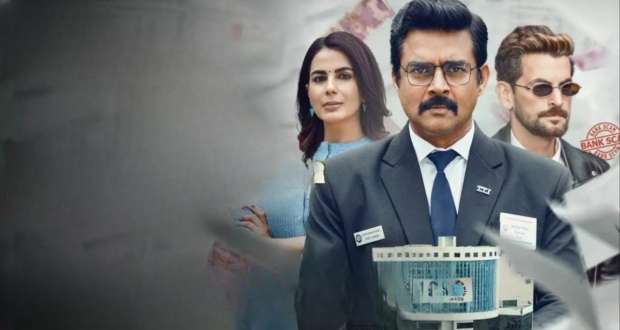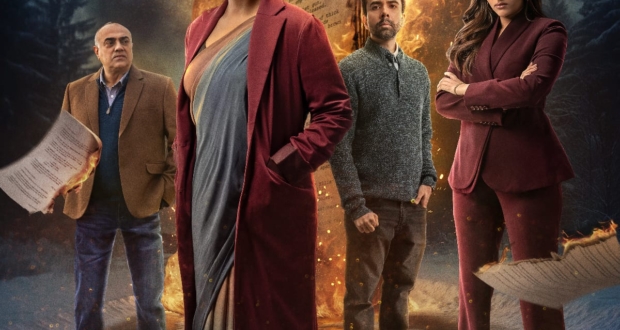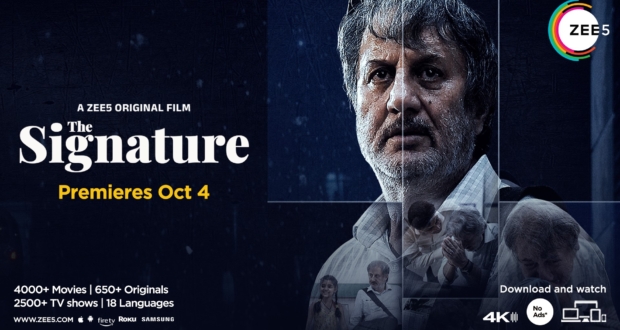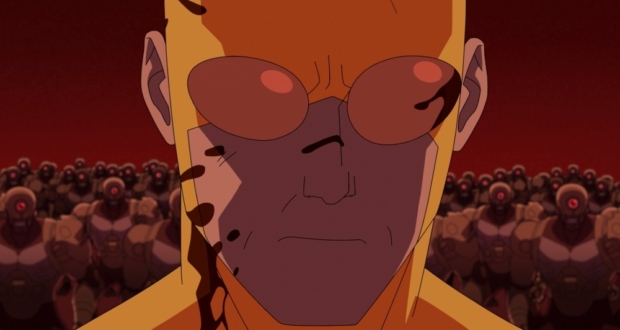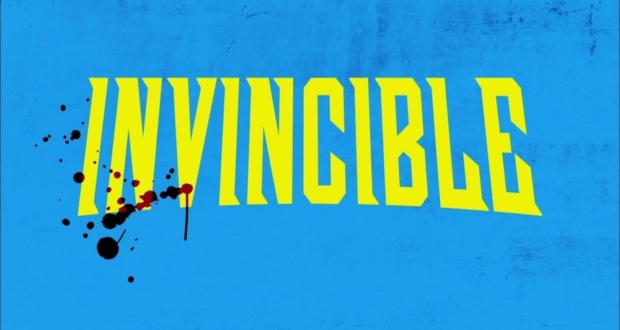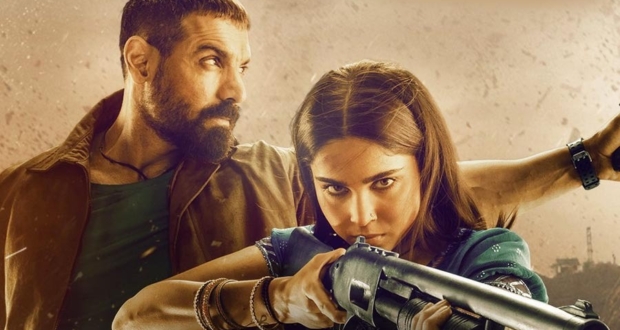One of India’s greatest character actors, Randeep Hooda, finally turns director with a bio-pic on an Indian revolutionary titled Swatantra Veer Savarkar. The film depicts the life of one of the many people who fought for India’s liberation from the British occupation. With his first directorial feature, Hooda chooses a difficult topic and manages to tell a compelling story, that works on many levels, despite his inexperience. To know if the movie is worth a watch, read on for my Swatantra Veer Savarkar review.
Please note that this Swatantra Veer Savarkar review is critiquing the film as a fictional story and a self-contained work, and not analyzing any potential historical inaccuracies, or liberties taken with real-world events.
Randeep Hooda Turns Director With Swatantra Veer Savarkar
Randeep Hooda is one of India’s most underrated actors. The immensely talented actor has proven his talent from his debut in Ramgopal Varma movies. And has gone on since to carve a name for himself as a great supporting actor in some of Bollywood’s biggest films. Having worked with the best of the best himself as an actor, Hooda gets behind the camera here, multi-tasking as a co-writer and producer of Santantra Veer Savarkar. And as a debut goes, it works.
The movie is about Vinayak Damodar Savarkar, one of the earliest men who began the fight for India’s independence from the British during their Raj. The movie even posits that some of India’s biggest revolutionaries, like Bhagat Singh, were inspired by Savarkar’s ideologies. The biopic is a complicated subject, given that the man himself had a varied life during a time that defined India for generations to come. And despite some initial stumbling with pacing and editing, Hooda does a great job with it. While I still think the movie is way too long, it never felt tedious or dragging. I’m curious to see what else Hooda can do behind the camera.
Swatantra Veer Savarkar Review Will Contain Some Spoilers

The film is very much the conventional bio-pic, but this one does something very interesting with it. Savarkar is shown as a young man who wants India’s independence from a young age. However, at the height of his rebellion, he is imprisoned for life. So the story of Savarkar the man, is happening parallel to the progress of India’s as a country. But with him in the background, unable to actively contribute or participate in the revolution he was one of the earliest to start.
This angle of the story also makes Savarkar a spectator for much of this fight. As things in the real world progress in ways he disagrees with, he has no opportunity to influence them from prison. It’s an interesting viewpoint that you don’t necessarily think of when you think of a story about rebellion and defiance. But that’s how this movie kind of stands out from the rest.
Satanrtra Veer Savarkar Review Differentiates From The Rest

Despite my enjoyment of the movie, there are definitely moments when Hooda’s inexperience sticks out. There are times when some lines of dialogue or reactions seem cringey or a little inorganic. Certain emotional moments are way too big and over the top. Some aspects of the story feel criminally underdeveloped. For example, Savarkar’s wife Yamuna Bai (Ankita Lokhande) stands by her revolutionary husband, for over 30 years of their marriage, most of which he was in prison for. However, she has barely 5 lines of dialogue in the 3-hour movie. There is also a lack of motivation for Savarkar’s passion. Outside of a scene in his youth where his dying father tells him to leave all this revolutionary business, the movie never explores the reasons behind Savarkar’s intense ideologies.
But even these complaints are kind of smoothed over, by how Hooda tells the story. There are times when the movie feels like an epic mythological tale about this great man and his sacrifice. And for the most part, those weird and abstract moments really work. For example, a scene where an interaction with others turns into a stage play monologue with a spotlight on Hooda as he seemingly plays to the camera as Savarkar defines a new Hindutva concept for audiences.
So in those moments the atmosphere of melodrama and excess works, given how stage plays or epic dramas usually have to play to the back of the theatre. Once I realized that this kind of approach to the story was intentional, things kind of clicked.
This Movie Is Not For Everyone

Even though I enjoyed the movie, with my intermediate knowledge of India’s history and Partition, Swatantra Veer Savarkar will not be a movie that everyone can enjoy. The story doesn’t spend any time explaining to audiences the current state of India. There is no CGI text in the beginning explaining that India was a British Colony conquered and enslaved by the British for decades. So without that context, Indian characters showing passion and intensity for their ‘motherland’, while also rage and aggression at the White characters, will feel a little odd. And then you get into the political nuances of the time and all the various factors that led to the division of the country into India and Pakistan during the British exit.
Audiences that have some brief knowledge of Indian history may be able to piece it all together. Especially as the movie does feature some appearances by India’s biggest historical figures such as Gandhi, Nehru, Jinnah and more. However, those names will mean nothing to audiences not familiar with history. Given that Swatantra Veer Savarkar is mostly for Indian audiences, the lack of accessibility complaints may not be as big an issue.
Randeep Hooda The Actor Is Awesome!

While Swatantra Veer Savarkar definitely has some issues, I thoroughly enjoyed the movie for one big reason; the film does takes a big departure from the usual stories about India’s freedom. It also doesn’t side with one ideology over another. If anything, it does idolize the man it’s based on but doesn’t push any one specific political narrative.
Most Bollywood movies with a story about India’s independence or partition almost always showcase a side. The movies feature nationalistic pride in India, while Pakistan is demonized as the bad guys. However, what I liked about Swatantra Veer Savarkar is that the ending was more of a tragic end than a victorious celebration. Savarkar is shown as being against the division of the country based on religion and is very affected when it happens. Given how things ended up working in real life after the Partition, the movie makes it seem like Savarkar saw it coming. And in that way, the story is very moving and compelling.
Swatantra Veer Savarkar Review Recommends The Movie
Hooda is much better on camera than behind here, and his sheer will of acting brilliance almost wills the movie to become interesting when it does slow down. Hooda again transforms his body to play the more brutal scenes in imprisonment, but it’s not the transformation that’s impressive, it’s Hooda’s commitment to the role and performance. Everything from his posture, body language, and micro expressions is so good that I completely lost Hooda the actor in the role and just saw this complicated person. It’s a powerful performance in a movie that doesn’t entirely match the same energy. But I still think it’s a must-watch for fans of independence films, or biopics that feature a more theatrical approach to the story.
Swatantra Veer Savarkar is currently streaming on ZEE5 GLOBAL.
What did you think of Randeep Hooda the director? Let me know in the comments below. Or reach out to me on X (formerly Twitter) at @theshahshahid for all things Bollywood.
SWATANTRA VEER SAVARKAR Review
-
Acting - 8/10
8/10
-
Cinematography/Visual Effects - 7/10
7/10
-
Plot/Screenplay - 8/10
8/10
-
Setting/Theme - 6.5/10
6.5/10
-
Watchability - 7/10
7/10
-
Rewatchability - 5.5/10
5.5/10

